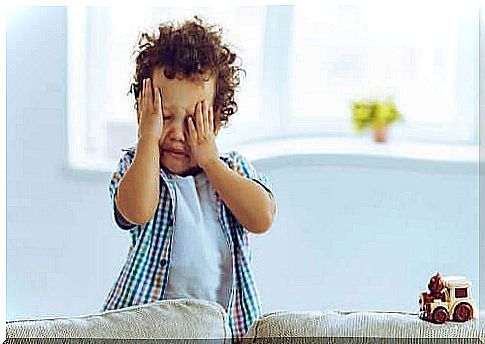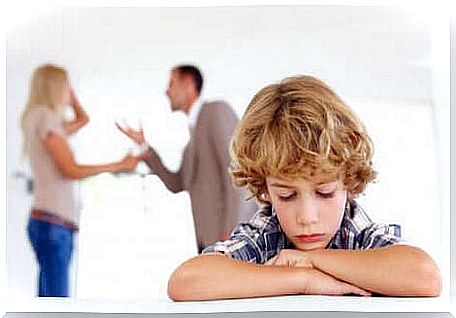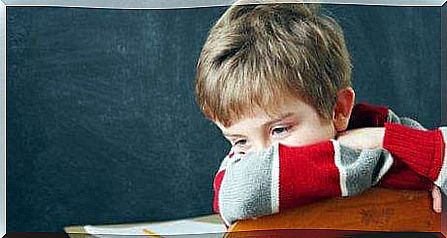How To Help A Child Deal With Death

Death is a part of life. The death of a loved one shocks all the people who are attached to him and love him. It can be difficult to help a child deal with death because the child does not yet understand the significance of loss and needs adult help to understand that he or she must express his or her feelings without fear.
The concept of “death” depends on age

How a child understands the meaning of death depends on his or her age. A child up to the age of two is only able to detect the absence of the deceased. After the age of three, children may believe that the death is temporary and reversible. Between the ages of 5 and 6, they can already understand the permanence of death and also the difference between life and death. So they understand that people can die, but only at the age of 8-9 do they realize that they can die themselves. From the age of 10, children fully understand what death means.
Children’s reactions to death

When a child has to face the death of a loved one, his or her reaction depends on the reactions he or she observes with other family members. In families where the subject is openly discussed, the child has the opportunity to express their pain and sorrow. In contrast, in those families where death is considered taboo, it is more difficult for the child to deal with death because he or she cannot express his or her feelings.
Some children can express their pain quietly to themselves, while others show their grief to the outside world. On the other hand, some may behave uncontrollably and defiantly. Children may also show signs of mental decline, anxiety, anger, and depression. This depends on the relationship they had with the deceased relative.
Depending on the age of the child, reactions to death may also occur at school. For example, children may have a lack of concentration and memory problems (forgetting is common), and school performance may decline.
Ways you can help your child deal with death
Just as age affects a child’s way of dealing with death, so important is how close he or she was to a deceased relative. The death of a grandfather, grandmother, uncle, or cousin is not as traumatic an experience as the death of one’s own parent or sister. However, whenever possible, it is important to help the child to face death, express his or her pain, and begin the process of grief so that he or she can overcome the loss of a loved one.
Tell him as soon as possible
There is no perfect time to tell a child about the death of a loved one. However, it should be done as soon as possible so that you can help the child deal with the death of a relative. If the deceased is a mother or father, the surviving parent should tell the child the news. If it’s too crushing, you might want to give the responsibility for telling to another close relative.
Avoid circular expressions
Grandma didn’t “leave”. Children must be clearly told that death is final. Answer all their questions as naturally and calmly as possible. Use language appropriate to their age to make sure they understand it.
You do not have to give the child information that he or she does not ask for. If it was an elderly or sick person, explain to the child that we all die when we get old or get seriously ill. You can also explain if it was an accident that happened to the deceased’s body.
Let the child freely express their feelings

The death of a father or mother creates a great sense of emptiness. A surviving parent should try to meet all of the child’s mental needs after hearing the news of the death or during the funeral. In other words, the child may need a shoulder to cry on. Others need to talk. They may even play or be overwhelmed at the funeral. Let them move freely. It is possible that the play takes their attention away from the crushing emotions.
How to help a child deal with death: don’t be overprotective
Some parents think they should protect their children from death. Children are not allowed to attend funerals, cry or talk about the dead. They also came up with stories of death to protect their children from pain.
However, these good intentions are of no help to children. Even the smallest in the family need to express their feelings and talk about how much they miss a deceased relative.
How to help a child deal with death: express your own pain
It is good for the child to see you mourn the death of a loved one. When you are able to openly express your own feelings and pain, you are also helping your child deal with the death of a relative.
Crying is necessary and natural when you feel such great pain about the loss of someone close to you. However, what to look out for is scaring the child. The child should not see you at the breaking point or else he worries that he will lose you too. The way you deal with your own pain will also help your child get over the loss.
Saying goodbye is very important to begin the process of grief

Whether a child should attend a funeral of a loved one depends on the family and the child. If the child is not yet old enough, it is important to explain what is happening at the funeral. The children can then decide for themselves whether they want to participate.
Kids who choose to attend the funeral may want to leave there at any moment. Respect their decision, and don’t force them to be there. In this case, you should talk to a person you and the child trust so that the child can leave with them if they wish.
In any case, let the child say goodbye. If the child does not want to attend the funeral, he or she can do so by writing a letter. He can also visit the grave later. Saying goodbye is very important to begin the process of grief and will help the child deal with the death of a relative, but it does not have to happen in front of the body of a deceased relative.









